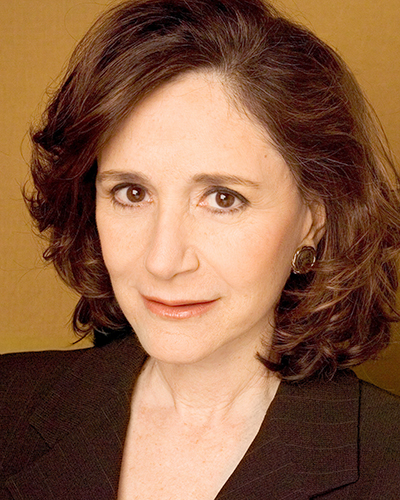Recommended

Pictured: The cast of Privacy. MIT scientist Sherry Turkle to be played by Rachel Dratch (bottom left).
“Most of us have not come to terms with our new relationship to privacy,” says MIT media scholar Sherry Turkle, who is featured in the recently premiered theatrical production Privacy. The show, created by Olivier-nominated playwright James Graham and award-winning director Josie Rourke—and starring Harry Potter’s Daniel Radcliffe—was a box-office success in London in 2014 and was entirely re-written for its showing in New York, from July 2–August 14.
 When Graham and Rourke decided to remake Privacy for an American audience, they cut the content specific to British politicians, scientists, and activists and, instead, portray experts from the US as characters. Turkle, a well-known authority on the science of technology and how it’s changing contemporary life, is played by Saturday Night Live alumna Rachel Dratch. Turkle, a huge fan of Dratch, is excited about how she will portray her, saying “I feel that I could not be in better hands.”
When Graham and Rourke decided to remake Privacy for an American audience, they cut the content specific to British politicians, scientists, and activists and, instead, portray experts from the US as characters. Turkle, a well-known authority on the science of technology and how it’s changing contemporary life, is played by Saturday Night Live alumna Rachel Dratch. Turkle, a huge fan of Dratch, is excited about how she will portray her, saying “I feel that I could not be in better hands.”
The show, unlike most others, actually requests that audience members keep their phones on—as they are used for opportunities to engage and support certain parts of the performance. Part comedy, part documentary, part lecture, Privacy explores the contemporary surveillance society and the personal trade-offs each one of us makes among freedom, comfort, and security. Graham and Rourke intentionally do not take a stance in the production, but hope instead to encourage open dialogue and bring awareness to the issue, something that is important to Turkle.
“I want [the audience] to be asking themselves: Can you have democracy without privacy? Can you have intimacy without privacy? And this play is about involving the audience as the story unfolds,” says Turkle. “Hopefully, it will encourage all of us to look up from our phones and begin new kinds of conversations with each other.”
Turkle’s character is based on her latest book, Reclaiming Conversation: The Power of Talk in a Digital Age, where she discusses, among many things, the relationship between the capacity for solitude and the capacity for relationship.
“It is only when you can gather yourself to yourself that you are truly open to listening to someone else because you can hear them for who they really are instead of projecting onto them who you need them to be to support your fragile sense of self,” she says. “This is how our phones most undermine our capacity for conversation: They undermine our capacity for solitude. We can’t tolerate being alone; we can’t tolerate a lull in the conversation; we fear boredom.”
Turkle, the Abby Rockefeller Mauzé professor of the Social Studies of Science and Technology and the founder and director of the MIT Initiative on Technology and Self, is thrilled that her work can be infused into a live theater performance.
“In my view, live theater is one of the places where we experience the power of ‘being there.’ It has a key role to play for the public good. Developing a political sensibility happens best in the actual not the virtual.”







